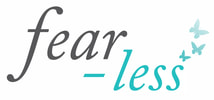|
Many of my clients come to me after an epic and humiliating public speaking fail – or a series of more minor fails.
I spend the first half of the course explaining the reasons why we are hypercritical of ourselves and why they have probably overestimated the extent of their failure. With public speaking, we judge ourselves more harshly than the audience does. We make inaccurate assumptions about what the audience is thinking, and we focus too much on our mistakes. I explain that it is important to recognise these errors in our thinking (known as ‘cognitive biases’ by psychologists) and adopt self-talk to neutralise them. For example, we can remind ourselves that the audience’s attention is not entirely on us as the speaker. The chances are that no one will remember the occasional fumble! In other words, that epic public speaking fail usually is much more significant in my clients’ minds than in anyone else’s. But in the second half of the course, I offer some tools for people who have had a genuinely bad experience. Perhaps they completely froze in front of an audience, and their manager has told them they have to do something about it, or someone tells them afterwards that they looked incredibly nervous. One of the most effective tools I can offer is self-compassion.
0 Comments
|
Catherine SymeI get huge satisfaction from seeing the relief, pride, and even joy that people experience when they complete a course and reflect on the progress they have made. See what others say for some inspiring stories. Archives
May 2024
Categories
All
|

 RSS Feed
RSS Feed
